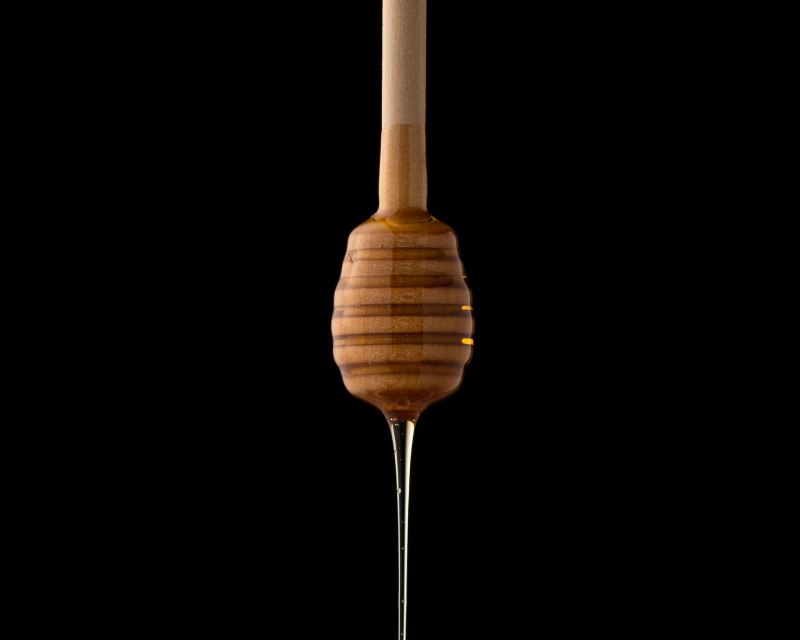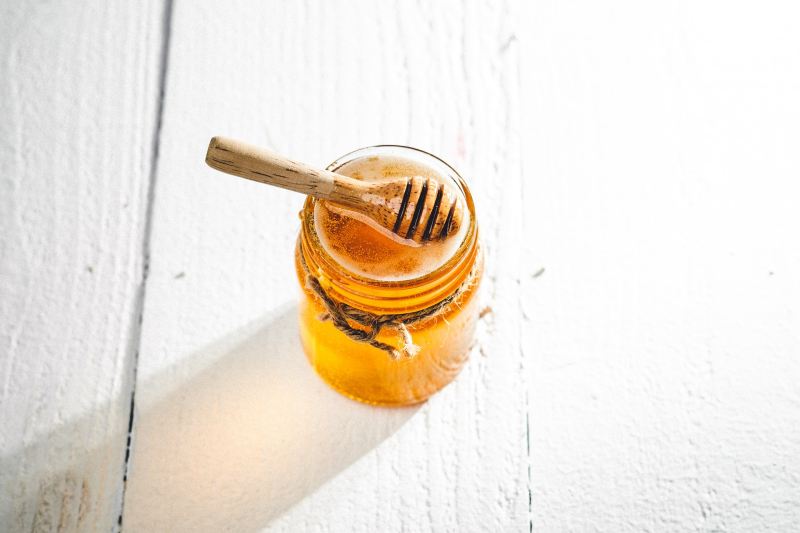
Whether you love to stir a teaspoon of sweet honey into your favorite herbal tea to enjoy a light, soothing treat before bedtime, or you like a dash of this naturally sweet nectar in your oatmeal, honey is a delicious natural sweetener with many applications. Moreover, while excessive sugar consumption is associated with weight gain, obesity, inflammatory diseases, type 2 diabetes, and even acne and other skin conditions, there are potential health benefits from consuming raw honey in moderation. In fact, raw honey has been used in traditional medicine for years for a variety of health and medical purposes.
Unlike most of the honey found on grocery store shelves, which is pasteurized by treating it with heat, raw honey is unpasteurized and retains potent natural compounds that provide health benefits. As with any high-sugar food, consuming too much honey can lead to weight gain, but incorporating a serving or two of raw honey into your daily diet can provide health benefits while satisfying your sweet tooth. Keep reading for a list of the benefits of honey.

Health benefits of honey
Raw honey is essentially straight from the hive. It is unprocessed, unpasteurized, and retains all its antioxidants. Unlike pasteurized honey, which is clear, silky, and preserved to last on the shelf, raw honey is cloudy and should be refrigerated. Note that honey should not be given to any child under the age of 1 year old, due to the risk of botulism.
1. Raw honey is packed with antioxidants
Just like many of the most nutritious fruits and vegetables, raw honey is a rich source of antioxidants called polyphenols. Antioxidants fight free radicals in the body—such as those created from exposure to harmful UV rays—and reduce oxidative damage. Antioxidants can thus protect against cellular aging and premature cell death, inflammation, and DNA damage. Research has demonstrated the ability of antioxidants to reduce the risk of certain cancers, heart disease, and other lifestyle diseases.
2. Raw honey can fight infection
Raw honey has been a staple medical treatment for wounds and infections for centuries. This is because it contains hydrogen peroxide, an antiseptic that can kill harmful bacteria and fungi. Using raw honey as a salve on open wounds may reduce the risk of infection and expedite healing, as it has also been found to increase tissue regeneration with cuts, wounds, and burns.
3. Raw honey can boost the immune system
The phytonutrients in raw honey have been shown to support the immune system and help fight off illnesses. Perhaps that hot mug of herbal tea with melted raw honey when you feel a sore throat coming on doesn’t just feel soothing but actually helps fight the impending cold or virus.
4. Raw honey can aid digestion
Raw honey contains prebiotics, which are indigestible fibers that feed the beneficial bacteria residing in your gut. These bacteria play key roles in digesting and absorbing nutrients, producing vitamins, fending off pathogens, and promoting bowel regularity, so fueling them with prebiotics keeps them robust. Raw honey has also been found to improve diarrhea and indigestion in some research studies.
5. Raw honey can reduce blood pressure
Several studies have found that raw honey can lower blood pressure. Because hypertension is associated with heart disease and stroke, getting your blood pressure under control can reduce disease risk and support heart health.
6. Raw honey can soothe sore throats and coughs
When your throat is sore, a gentle coating of raw honey in tea can soothe inflamed tissues and ease the pain. Moreover, raw honey can suppress coughing, which makes it a good option before bed when you’re battling a bad cold or respiratory infection.
7. Raw honey may reduce allergies
There is some evidence pointing to the efficacy of raw honey to reduce the symptoms and severity of seasonal allergies. The pollen and bee propolis may provide some degree of immunotherapy, particularly when you ingest local raw honey from your specific region.
8. Raw honey contains some nutrients
In addition to antioxidants, raw honey contains zinc, iron, and potassium, which are minerals essential for a variety of normal physiological functions such as supporting the immune system, transporting oxygen, conducting nerve impulses, and conducting electrical signals in the heart.
9. Raw honey can provide quick energy
As raw honey is a form of simple sugar, it can provide a quick boost of energy. Instead of consuming processed, sticky, chemical-laden energy gels, for instance, marathon runners and other athletes may find using raw honey is a healthier way to top off glycogen stores during an athletic endeavor.
10. Raw honey is good for sexual health
Studies have shown that honey can improve erections in men who deal with impotence. It’s also believed that eating raw honey in reasonable amounts can considerably improve testosterone concentrations and sperm count.
11. Raw honey is easy to eat and absolutely delicious
While some healthy foods are difficult to prepare, hard to work into meals, or let’s be honest — don’t taste all that great, honey doesn’t fall into any of those categories. You can work honey into just about anything you’re eating. Substitute honey for sugar in your coffee, in your cereal, or in your yogurt. Drizzle some onto bread and fruit for a deliciously sweet snack. This sticky sweet treat is delicious any way you want it.



